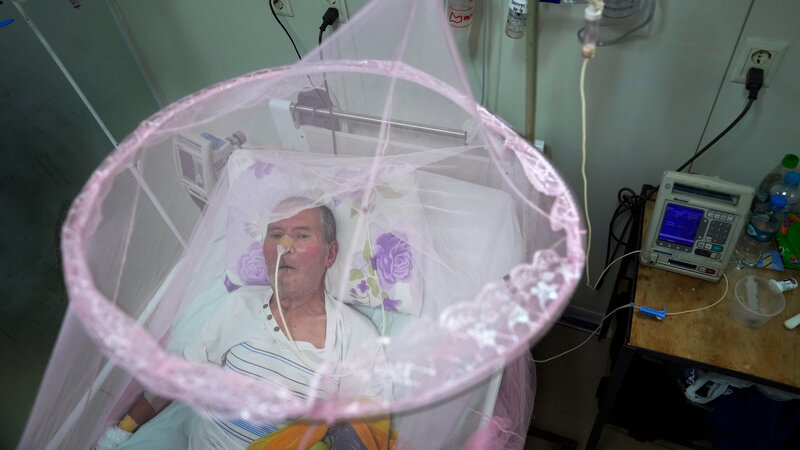https://www.npr.org/2023/08/21/ [login to see] /advancements-may-help-fight-the-chikungunya-virus-wave-in-south-america
When someone enters the hospital with the chikungunya virus, there's no mistaking it.
"The patients came here with fever and also with pain in their joints," says Dr.
Susana Lloveras, an infectious disease physician at Hospital Muñiz in Buenos Aires, Argentina, one of several South American countries where the mosquito-borne virus has surged in 2023. The joints in their hands and feet commonly ache along with their knees. The pain can get so bad that some have difficulty walking or even holding a cup of coffee.
"It affects the quality of life," says Lloveras. "You are well. And suddenly, you can't move, you need another person help you to do the common task of every day."
Although the disease, transmitted by mosquitoes, is rarely fatal, the worst symptom can be long-lasting joint pain.
But a new vaccine approved this week by the U.S. Food and Drug Administration – along with other new advances — may help us outfox this virus (whose name is pronounced "chicken-GOON-ya" and according to the World Health Organization, comes from the Kimakonde language, spoken in parts of Tanzania and Mozambique, and means "to become contorted").
The FDA approval is for Ixchiq — the first vaccine for the chikungunya virus, for
those age 18 and older. It requires just one dose delivered by an intramuscular
injection.
The vaccine is critical because the global footprint of the disease is expanding. The FDA's Peter Marks said, "Today's approval addresses an unmet medical need and is an important advancement in the prevention of a potentially debilitating disease with limited treatment options."
The vaccine's safety is based on two clinical studies involving about 4,500
individuals. In fewer than 2% of those who received the vaccine, a severe adverse reaction resulted. The FDA is requiring a future study to assess this risk.



 Medical
Medical Health
Health


